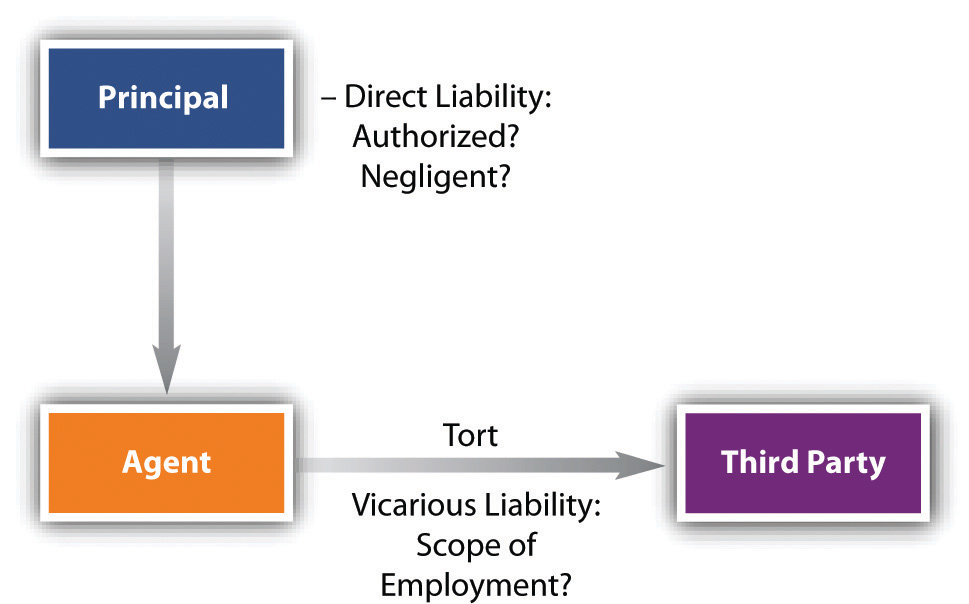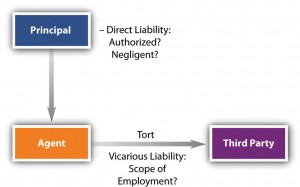Vicariously liability is a form of a secondary liability which mean the liability of a person is with respect to act or omission of someone else working under his instructions. This form of liability binds the owner for the acts of the servant done in course of employment . Vicarious liability is seen as a part of the tort law which is civil law other than contracts.
Vicarious liability has been developed as a result of the evolution of law over the years with the help of judgements passed by the courts. Vicarious liability took birth as it was seen that the servant, who committed the wrong was mostly of a weaker financial background and was not in a position to pay the plaintiff damages for the same. This way, the whole purpose of compensation was defeated, as a result the superior, under the instructions of whom the servant was performing duties was help liable and made to pay for the servants wrong acts.
There are two doctrines that lay down the essentials for establishing vicarious liability .The vicarious liability over a person is firstly decided by the doctrine of “respondeat superior” which means that a superior is responsible for the acts and work of his subordinate done under is instructions or authority of such superior. The essential function of this doctrine is that it states for the existence of a superior-subordinate relationship between the person who has done the wrong and the person who is being held liable for the same. These relations can be of a master-servant or fiduciary relationships like that of all the partners of a firm to the acts of each other or that of a principle and his agent.
The other legal doctrine applicable is “qui facit per alium facit per se” meaning he who acts through another is deemed to have acted himself. This establishes a need for a wrong done by a servant , partners or others to be in the course of employment i.e. In discharging the duties that are a part of the terms of his employment. Any act outside the course of employment therefore cannot hold the master liable under the ambit of vicarious liability.





26 Comments. Leave new
Well written
good article!
Nice
Good article!
well defined article!!
informative
Good!
Quite informative.
Very well explained.
informative…got to learn a lot from this!
Nice article
Goood One 😀
nicely explained..
Interesting!
interesting..
Very informative.
nice 1
Nice article.
Well written and well explained 🙂
well written!
Amazing article!
Very wellll explained… 🙂
Informative 🙂
U hv explained it very well 😀
Nice way of explaining things 🙂 Liked it
Nice job
Nicely explained.